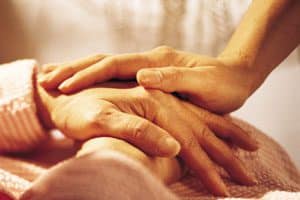
The Penn Memory Center offers several formats of a psycho-educational Caregiver Class for those caring for a family member or loved one with Alzheimer’s disease (AD) and other forms of dementia.
Caregivers of people with AD or other forms of dementia may experience feelings of sadness, anger, confusion, hopelessness, or frustration. This course is designed to help caregivers develop skills to better help their loved ones – and themselves – cope with the many changes of living with dementia. Unlike a typical support group, this course offers a unique six-week curriculum. While participants will learn specific techniques to better care for loved ones, this class stresses ways of coping with the personal and emotional challenges caregivers face.
Class Formats:
Zoom Class: Held on Tuesdays, May 27 through July 1, from 10 a.m. to 12 p.m. (Caregivers only). Facilitated by Alison Lynn, LCSW and Rachel Marx, LSW.
In-Person Class: Next session coming in spring/summer 2025.
Asynchronous Class: This pre-recorded class, led by Felicia Greenfield, LCSW, can be taken at your own pace. It includes the same material as the live caregiver classes but without the in-person or virtual office hours with a social worker. You can start whenever you like and move through it at your own pace.
Topics Include:
• Understanding and better managing behavior and emotions, especially conflicting, negative or distressing thoughts and feelings;
• Finding the personal “fuel” needed for caregiving through strategies including recognizing and sustaining pleasant events;
• Communicating effectively with family, friends, and others to access needed help;
• Understanding what’s ahead, and planning medical, legal, and financial next steps.
For more information, please contact: Alison Lynn, LCSW at alison.lynn@uphs.upenn.edu or 215-360-0257